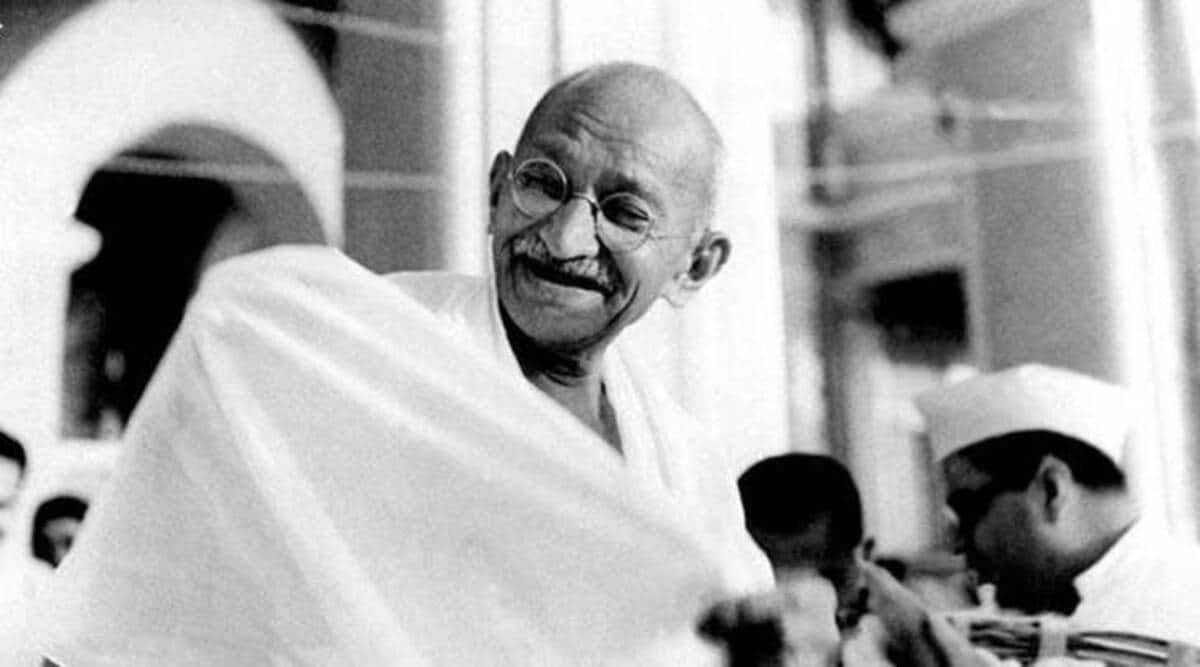Mahatma Gandhi’s environmental vision was a reflection of his holistic worldview that integrated politics, economy, health, and development. His environmentalism was not a separate philosophy but an integral part of his overall vision for India and the world.
Gandhi’s environmentalism fitted in with his overall vision for India and the world. He believed in extracting from nature only what is absolutely necessary for human sustenance. He practised asceticism and simple living, promoted a rural-centred civilization founded on village autonomy and self-reliance, advocated for handicrafts and craft-centred education, stressed manual labour, and avoided exploitative relationships, all while incorporating elements of an ecological vision.
Gandhi had anticipated most of the environmental problems that we face today. He envisaged an ecological or basic needs model centred on the limitation of wants in contrast to the modern civilization that promoted material welfare and the profit motive. This perspective was largely built on the ecological practices of peasants and tribal communities.
Gandhi’s environmentalism is not an environmentalism in the modern sense. He did not create a green philosophy or write nature poems. However, he is often described as an “apostle of applied human ecology”. His ideas have inspired many environmental movements in India.
Gandhi’s environmental vision
- Non-violence: Gandhi believed that non-violence is not just a way to resolve conflict between humans, but also a way to interact with nature. He advocated for sustainable practices that do not harm animals or damage the environment.
- Simple living: Gandhi believed that we should live simple lives and avoid overconsumption. He said, “It is better to have enough food in the belly than stones for a house.” Gandhi’s own lifestyle was very simple. He ate a vegetarian diet, wore simple clothes, and travelled by foot or train.
- Respect for all life: Gandhi believed that all living beings have intrinsic worth and should be treated with respect. He said, “To my mind, the life of a lamb is no less precious than that of a human being.” Gandhi’s respect for all life extended to animals, plants, and even the Earth itself.
Gandhi’s environmental vision was ahead of its time. He warned about the dangers of industrialization and mass production long before they became major environmental problems. He also advocated for sustainable practices that are still relevant today, such as using renewable energy, recycling, and eating a plant-based diet.
Gandhi’s environmental legacy is vast. He inspired many environmental activists around the world, including Arne Naess, the founder of deep ecology. Gandhi’s principles also mirror the goals of the United Nations Sustainable Development Goals, which strive to establish a more sustainable and equitable future for all.
Gandhi: Unity of all life
Gandhi saw everything in an interrelated way. In his writings, we find elements of economics, politics, and sociology suffused with an interconnectedness informed by ethics. He believed in ‘advaita’ (non-duality), the essential unity of man and all that lives.
Gandhi’s economist, J C Kumarappa, who articulated his ecological views more clearly, stated, ‘In the traditional archives of knowledge, religion, sociology, and economy have all been assigned their separate and exclusive spheres. Man has divided himself into various watertight compartments. The left hand does not know what the right-hand does. Nature does not recognize such divisions. She deals with all life as a whole.’
A human ecology perspective is thus holistic. This perspective visualizes human beings and their environment as constituting an integrated whole. The Western tendency to compartmentalize everything into different categories does not agree with the ecological perspective.
Gandhi’s vision: Climate change solutions
Climate change is one of the most pressing environmental challenges facing humanity today. Gandhi’s environmental vision can help us address climate change in a number of ways.
First, Gandhi’s emphasis on non-violence can help us to transition to a clean energy economy in a peaceful and just way. We need to phase out fossil fuels, but we need to do so in a way that does not leave people behind. Gandhi’s principles can help us to create a just transition to a clean energy future.
Second, Gandhi’s focus on simple living can help us to reduce our consumption of fossil fuels and other resources. We need to learn to live with less and to value experiences over material possessions. Gandhi’s lifestyle can serve as a model for us as we strive to reduce our environmental impact.
Third, Gandhi’s respect for all life can help us to create a more sustainable world for all. We need to protect our planet’s biodiversity and to transition to a food system that is more sustainable and humane. Gandhi’s values can guide us as we work to create a more sustainable future for all.
We can apply Gandhi’s environmental vision to our own lives
- Reduce our consumption of resources. This means buying less stuff, eating less meat, and driving less.
- Use renewable energy whenever possible. This includes installing solar panels on our homes, driving an electric car, and choosing energy providers that use renewable energy sources.
- Recycle and compost. This helps to reduce waste and conserve resources.
- Support sustainable businesses and organizations. This means buying products from companies that are committed to environmental protection and social responsibility.
- Get involved in environmental activism. This could involve volunteering for an environmental organization, attending protests, or simply talking to your friends and family about the importance of environmental protection.
Keep Reading
Part 1: Cloudburst in Ganderbal’s Padabal village & unfulfilled promises
India braces for intense 2024 monsoon amid recent deadly weather trends
Support us to keep independent environmental journalism alive in India.
Follow Ground Report on X, Instagram and Facebook for environmental and underreported stories from the margins. Give us feedback on our email id greport2018@gmail.com.
Don’t forget to Subscribe to our weekly newsletter, Join our community on WhatsApp, and Follow our YouTube Channel for video stories.








